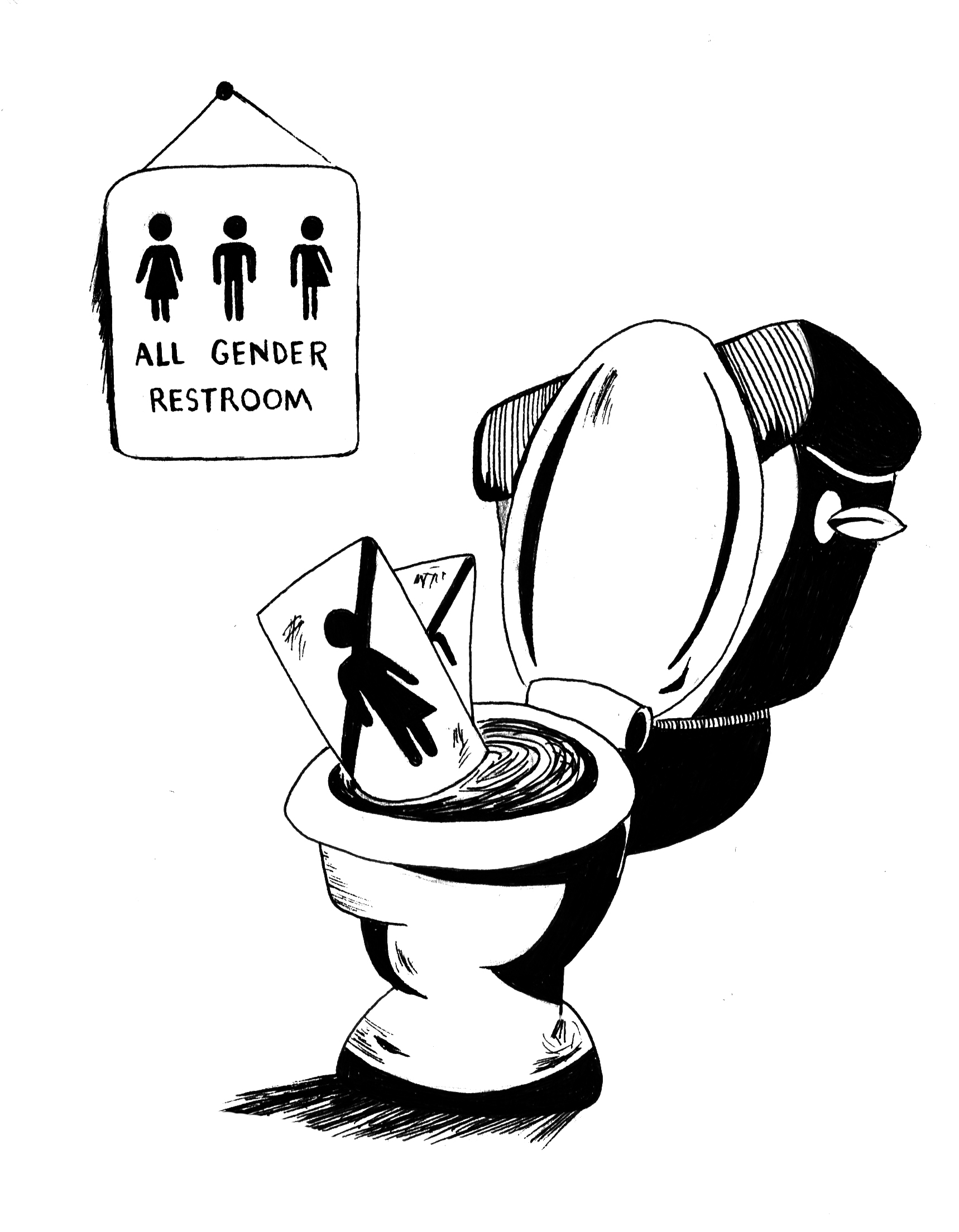
Recent events have rightfully provoked intense campus activism surrounding racial injustice. I stood among hundreds of my peers on Cross Campus this past Monday and watched the black community stand in solidarity against discrimination. In the midst of this fierce dialogue lies a less discussed cause of transgenderism. Over the past several days, students across the University hosted “Trans Week” — a necessary series of events that aimed to erode the stigma surrounding gender variance on campus. Most Yalies did not experience this cacophony of celebration. They understandably directed their activism toward matters that touched upon relevant personal concerns. Nevertheless, extending empathy beyond pressing personal matters is the most morally righteous responsibility a bystander should uphold. I’m calling on all Yalies to channel a portion of their current activist energies to our cause, which is dangerously small in numbers and still largely misunderstood in greater society.
An earlier opinion piece I wrote for the News elicited overwhelmingly positive feedback, demonstrating that Yalies have the capacity to extend their empathies to less familiar causes. It was a transgender call of action to the administration, which has already implemented a few minor, yet crucial, policy changes in recent weeks. Amid this newfound surge of positivity among the campus’s transgender climate, l heard an excruciatingly painful comment in response to my previous piece. And now, I feel obliged to ask for a second transgender call to action — this time, directed toward the student body.
The commenter posited that Yale’s ROTC program has the right to exclude transgender students based on the dubious premise that gender dysphoria is an inauthentic condition. They drew this theory from the former chief of psychiatry at Johns Hopkins University Hospital, Paul McHugh. In 2014, McHugh penned a harsh article in The Wall Street Journal that claimed gender dysphoria, the condition of identifying with a gender different from one’s biological sex, is a delusion akin to a sense of fatness that victims of eating disorders harbor — among other ludicrous accusations. McHugh’s long-standing anti-transgender zeal pushed Johns Hopkins in 1979 to close their sex reassignment department, which most likely would have been one of the best in the world today.
It will take another full column to rebut McHugh’s erroneous theories. The fact of the matter is that McHugh is wrong, and he has inflicted terrible pain onto an already suffering population from his comfortable seat of old white male privilege. Let me be clear: Gender dysphoria is a terrifyingly real condition, one that cannot be therapized out of its inhabitant. Waxing poetic, it is an emotional tsunami that hits the body’s beaches with such ferocity to blind the eyes from the most vivid shades of joy. I dream of confronting Mr. McHugh one day. I would tell him that his legacy as an oppressor will be harshly judged by more progressive generations to come. These generations will push the arc of the moral universe more toward justice.
But, my fellow Yalies, you already harness the capacity to push this arc. You can convert the intellectual laziness and moral corruption of yesterday into intellectual rigor and moral righteousness of tomorrow. There are two steps you can take to do this:
First, understand transgenderism in a clinical and emotional sense. “Transgender” is an umbrella term that covers a wide range of gender identities. Some transgender individuals seek to transform into the gender opposite of their biological sex; other transgender individuals are comfortable living in a space between “male” and “female.” Gender is also a spectrum and can be fluid. From an emotional standpoint, being transgender (despite recent societal advances) is a tremendously difficult burden to shoulder. Even the most subtle indications of stigma in a surrounding environment etch a notion of undue shame onto the mind, deepening a well of shame that can lead to serious mental health consequences.
Second, apply this basic understanding of transgenderism to real life. Treating transgender people with respect involves using their correct name and preferred pronouns. The best way to do this is to ask us how we self-identify instead of simply making aassumptions. Many different sets of pronouns exist to convey a point on the gender spectrum. Many choose the binary “he/him/his” and “she/her/hers”; others select “they/them/theirs” to indicate a middle point on this continuum.
These two steps are basic building blocks to cultivating a respect for gender-variant individuals on campus and beyond. Implementation is your choice: I urge you not to be walking paragons of 21st-century elitist ignorance. Whether you are fiercely conservative, anarchic, marxist or liberal, you can flex the intellectual muscles of these political identities while still maintaining a deep sense of respect for all human beings. You should not be paying $60,000 for an education only to succumb to a flawed mindset that still shames people for acting on their authentic and profound feelings. Itch the status quo. Ruthlessly question it. We are navigating some of the most uncharted, murky and treacherous cultural waters in recent history. Help us navigate these waters. My fellow Yalies, this is a second transgender call to action.
Isaac Amend is a junior in Timothy Dwight College. Contact him at isabel.amend@yale.edu .







